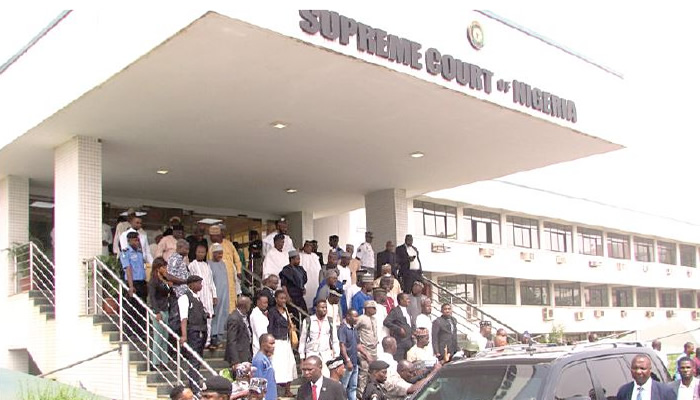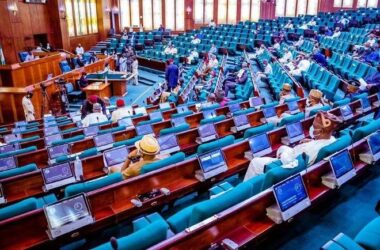The Supreme Court of Nigeria has dismissed a lawsuit filed by Kogi State and 18 other states challenging the legal foundation of the Economic and Financial Crimes Commission (EFCC), the Independent Corrupt Practices and Other Related Offences Commission (ICPC), and the Nigerian Financial Intelligence Unit (NFIU). The court’s decision, delivered on Friday, upheld the constitutionality of these anti-corruption agencies.
In a unanimous ruling by a seven-judge panel led by Justice Uwani Abba-Aji, the Court stated that the EFCC Establishment Act did not require ratification by the Houses of Assembly of the 36 states, as it was not considered a treaty but a convention. The Court explained that such conventions do not need state approval but are instead governed by the National Assembly, making the EFCC Act fully valid across Nigeria.
“A convention would have been ratified by member states, and the National Assembly can make laws from it, which will be binding on all the states in Nigeria as it is in the case of EFCC Establishment Act.
“In a country like Nigeria, the federating units do not have absolute power. The NFIU guideline is to present a benchmark and not to control the funds.
“Where an act of law is made by NASS like the NFIU and its guidelines, it is binding on all. Any act that has been competently enacted by the NASS cannot be said to be inconsistent.
“Where the NASS has enacted several laws on corruption, money laundering, etc., no state has the right to make law to compete with them. The investigative power of the EFCC cannot be said to be in conflict with legislative powers of the state assembly.
“I must agree with the AGF that the plaintiffs’ argument, that is, the Houses of Assembly of the plaintiffs’ states, is not tenable in law,” the Supreme Court added.
The states, through their Attorneys General, had argued that the EFCC was improperly established, claiming that Section 12 of the 1999 Constitution, as amended, was not followed before its creation. They contended that the majority of the Houses of Assembly should have voted to approve the EFCC Act. Furthermore, the plaintiffs argued that the EFCC’s creation violated constitutional provisions by not involving the states.
However, the Supreme Court rejected these arguments, with Justice Abba-Aji affirming that the National Assembly’s enactment of the EFCC Establishment Act was valid. The Court also found no conflict between the powers of the EFCC and state legislatures.
This legal challenge, which included claims against the ICPC and NFIU, was dismissed, strengthening the position of these key institutions in Nigeria’s fight against corruption. The Federal Government, represented by the Attorney General of the Federation, Prince Lateef Fagbemi, had argued that the suit undermined the country’s efforts to combat financial crimes.










